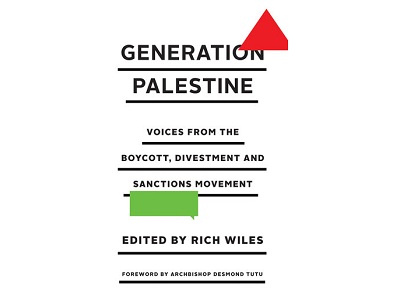
By June Rugh
I highly recommend the new collection of essays, Generation Palestine: Voices from the Boycott, Divestment and Sanctions Movement, ed. Rich Wiles, Pluto Press, London, 2013.
With an impressive range of contributors–Palestinian author and journalist Ramzy Baroud, Israeli economist Shir Hever, UN Special Rapporteur Professor Richard Falk, Irish journalist/activist Eamonn McCann, Greek Orthodox Archbishop Atallah Hanna, Israeli author/activist Ilan Pappe, and Archbishop Desmond Tutu, among others–these richly varied voices make a powerful collective argument for the efficacy of Boycott, Divestment, and Sanctions (BDS) as the most powerful nonviolent action for mobilizing civil society (in Palestine, and around the world) against the occupation and other injustices by Israel, and for the liberation of the Palestinian people.
The book includes helpful historical perspectives, including Ramzy Baroud’s point that while BDS is often said to be modeled on Anti-Apartheid Movement boycott campaigns (for example, in South Africa), “the use of the boycott strategy also has indigenous roots within Palestine’s history of resistance against oppression,” with examples from both the First Revolution (1936) and the First Intifada (1987)–for example, the whole village of Beit Sahour refusing to pay taxes and boycotting all Israeli institutions in 1987. (See Baroud’s chapter, “Palestine’s Global Battle Must Be Won.”)
As Archbishop Tutu reminds us, “the internal struggle and its international support network were truly complementary” in his country’s fight against apartheid, and so we must globally support the BDS movement until it reaches the tipping point and achieves real change.
This book is an invaluable educational and reference tool for anyone who supports the BDS movement and the right of Palestinians to full, democratic citizenship on their own land.
– June Rugh is a Seattle-based writer. She contributed this article to PalestineChronicle.com.





